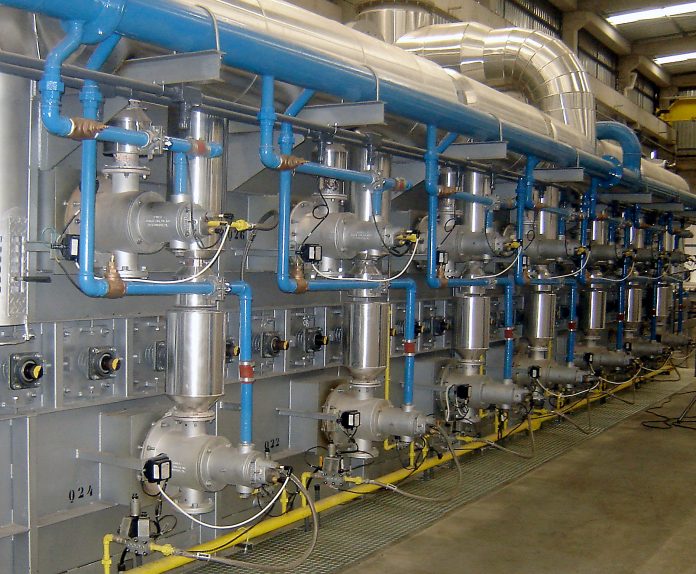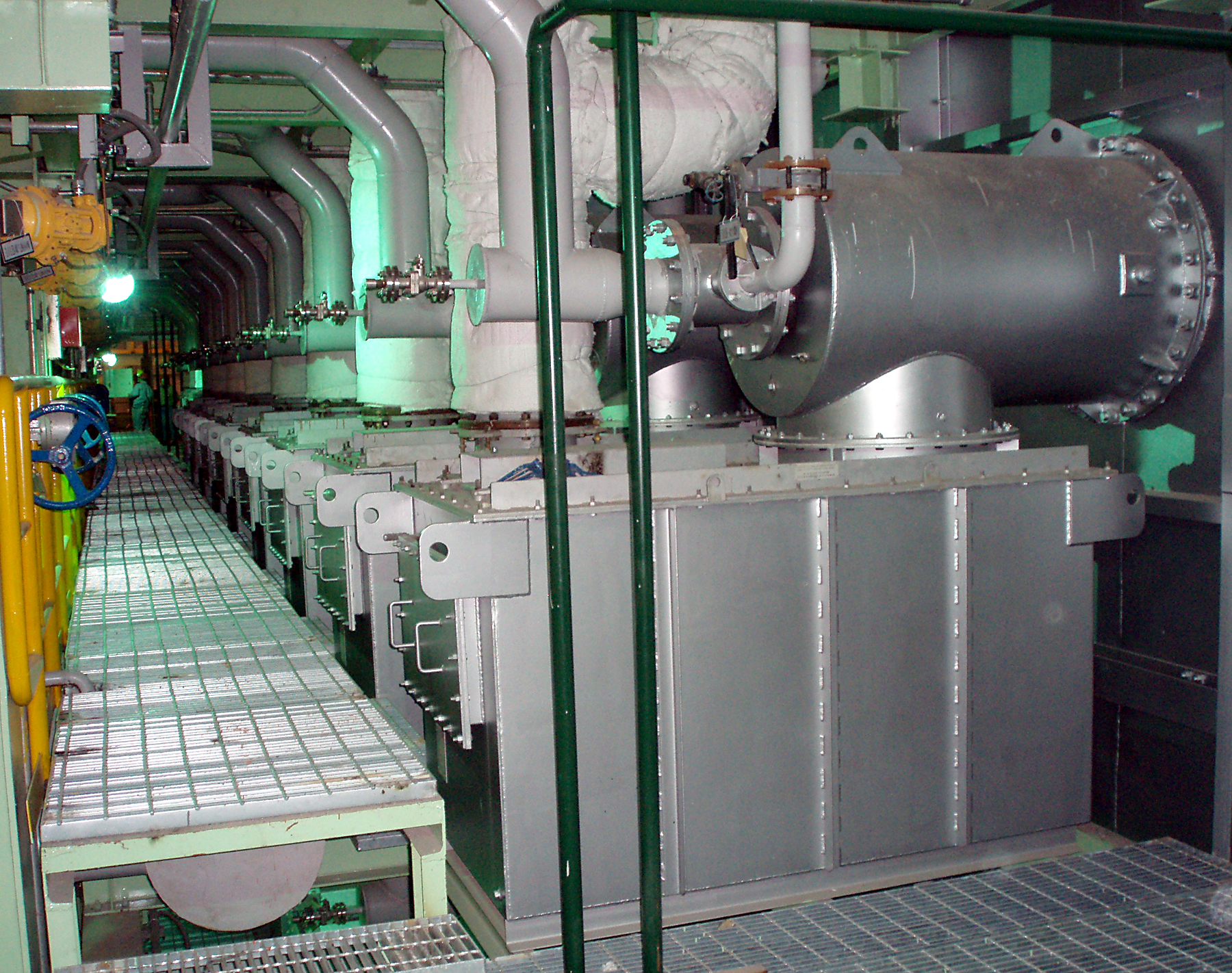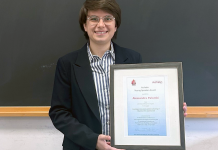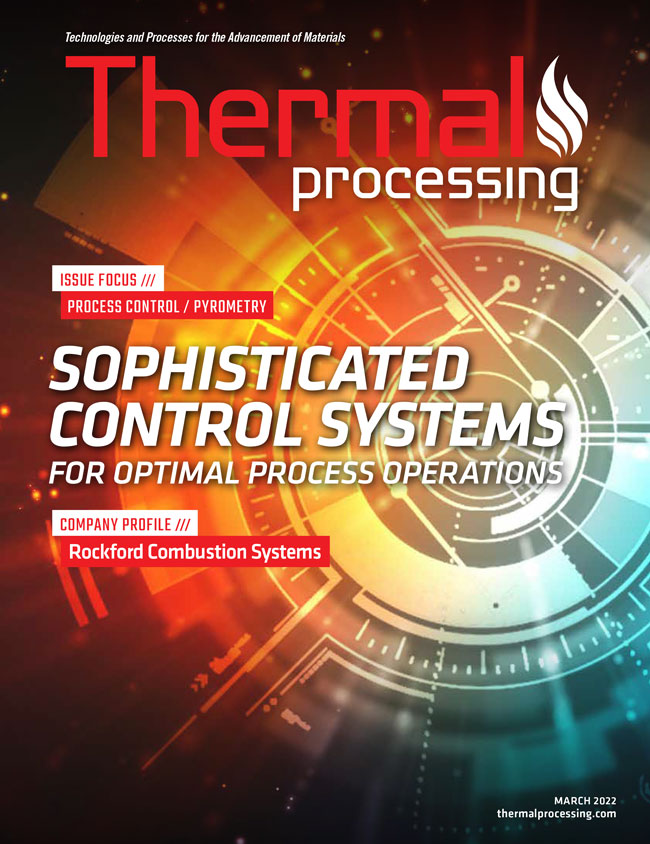
Bloom Engineering began at a shop in Pittsburgh’s North Side in 1934 and eventually moved to its current site in 1962. The company is named after founder Fred S. Bloom. Bloom, who had ties to the steel industry, began making burners because he saw an immediate need for safer, more efficient, and more reliable combustion equipment that could improve production capabilities.
Although Bloom focused on the steel industry during its early years, it now provided custom engineered solutions for heating processes in many industrial sectors. For example, its regenerative burner systems are now used throughout the world for secondary aluminum melting. Bloom has also provided equipment for industrial boilers, forges, thermal oxidizers, waste incinerators, air heaters, and iron-ore processing, to name a few.
Over time, Bloom has grown into a global company with manufacturing centers in Germany, Bloom Engineering (Europa) GMBH; China, Bloom Combustion Products (Shanghai) Co. Ltd.; and India, Bloom Combustion (India) Private Ltd. In addition, Bloom also owns HCT (Hotwork Combustion Technology Ltd.) and can provide spare parts for legacy HCT products along with select HCT designs, which are now offered under the Bloom name. Although Bloom has a manufacturing network throughout the world, its Pittsburgh office serves as the group headquarters. It is in the company’s Pittsburgh-based combustion R&D lab and engineering departments where Bloom does most of its new product development and testing.
Since Bloom’s beginning, the steel industry has been one of its key sectors. Today, Bloom provides equipment to steel mills for billet and slab reheating; ladle heating; strip processing including annealing, tempering, and galvanizing; stove burner ignition; and flares. Outside of steel, the secondary aluminum industry is where Bloom sees the most activity. Apart from being a world leader in regenerative systems for aluminum melting furnaces, Bloom also provides heating systems for holders and even rotary furnaces.
High quality products
Bloom is committed to providing high quality state-of-the-art products. However, because the company supplies custom equipment for highly demanding industrial processes, there are times when extra field tuning is needed before the equipment — or the overall process that the equipment is part of — perform optimally. It is at these times when clients get to see the full value that Bloom’s experienced service staff and process experts provide. Walking away from a job before the client’s equipment meets or exceeds expectations and all the production and environmental guarantees are met runs counter to both Bloom’s legacy and its culture.
The ability to customize products allows Bloom to provide a great deal of value to its customers. A good example of this would be Bloom’s 1610 burners, which are commonly bought to replace existing burners on steel reheating furnaces to reduce a furnace’s overall NOx emission. For these types of retrofits, Bloom designs its burners to match as closely as possible the footprint of the burners being replaced, so that piping, mounting, and refractory changes are minimized, resulting in greatly reduced installation costs.
High temperature, high efficiency, ultra-low NOx, and multifuel applications are Bloom’s specialty. There are many product lines that display these abilities but four really stand out: 1150/1650 regenerative burners, 1610 direct fired ultra-low NOx burners designed for applications with preheated air and inputs above 4MMBtu/hr., the 1500-S line of direct-fired ultra-low NOx burners for capacities below 4 MMBtu/hr., and the 2370 high efficiency ultra-low NOx recuperative radiant tube burners.
Bloom is continuously innovating and has been granted more than 65 U.S. patents, the latest of which was published this year. Bloom also provides products with an incredible range of capacities. From 10,000 Btu/hr. pilot burners to 400 million Btu/hr. process heating burners, the company’s product line covers about any heating need.
Above all else, Bloom is an engineering company. Manufacturing burners, fuel trains, control panels, and other combustion equipment is part of what the company does, but its focus is to develop proper engineering solutions to solve its customers’ problems. Because Bloom custom engineers each product supplied, it can help its clients achieve optimal results from their heating equipment that might not have been possible using a standard “catalog” typed product. This approach can be summed up by the words of Bloom himself: “First, understand the customer’s problem. Then define it in terms that allow a calculated, engineering solution. Apply properly designed equipment in the correct arrangement so that the furnace will produce the desired results in terms of capacity and quality. Last, but not least, go back to the installation and make sure that the furnace is living up to what the calculations indicated is should.”

Reducing carbon footprint
Throughout its 88-year history, Bloom has seen many changes in the industries it serves. Today another big change being considered by many is a switch from fossil fuels, which contain carbon and subsequently release large amounts of carbon dioxide into the Earth’s atmosphere when burned, to fuels that contain little or no carbon such as hydrogen. Regardless of what the future holds, Bloom has gone ahead and tested most of its critical product lines on pure hydrogen. This includes its regenerative 1150/1650 burners, its 1610 series, and very recently, its 2370 radiant tube burners. With minor modifications, Bloom now knows that its products can be designed for use with hydrogen and continue to achieve ultra-low NOx emissions. Bloom is now ready to help design hydrogen-capable combustion systems. From the pipe trains delivering the hydrogen, to the burners that combust it, and combustion chambers that must be designed to work optimally with hydrogen’s heat-release partners, Bloom plans to help its customers solve their combustion problems for many years to come.
Bloom has about 175 direct employees globally. Its U.S. staff numbers about 100 while the remaining direct employees work in either Europe or Asia. In addition to direct employees, Bloom has contracted with representatives in many additional countries and territories, including Mexico, Brazil, Australia, and South Korea.
Bloom Engineering Co. Inc. is in the south hills of Pittsburgh, Pennsylvania. Bloom’s main phone number is 412-653-3500, but the company has sales staff throughout the world to service specific territories. For contact information for Bloom’s sales representatives, go to: www.Bloomeng.com.
Calendar of Events
March 14–17
Electrification 2022 International Conference & Exposition
This event will share what’s new in the electrification of buildings, vehicles and industry. Spend time with your colleagues and explore efficient, equitable solutions for a net-zero economy.
Charlotte Convention Center | Charlotte, North Carolina
March 24–28
IHEA 2022 Annual Meeting
IHEA’s 92nd Annual Meeting will be held on Royal Caribbean’s Brilliance of the Seas, sailing from Tampa, Florida. In addition to IHEA’s committee meetings, business presentations and networking opportunities, the itinerary includes a day to enjoy Costa Maya, Mexico.
June 15–16
Process Heating & Cooling Show
The inaugural show will focus on industrial heating and cooling processes. This event will bring together numerous industries in the process industries including oil & gas, electronics, pharmaceuticals, food, beverages, packaging and plastics, to name a few.
Donald E. Stephens Convention Center | Rosemont, Illinois
For details on IHEA events, go to www.ihea.org/events

























